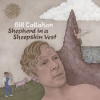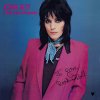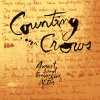Eh. The very nature of "art" and of "performance" is a constantly-shifting landscape, particularly when new technologies are introduced into an environment. Hell, Bob Dylan, a subject of this Desert Island Music Draft thus far, was once castigated for daring to introduce an electric guitar--the horror!--to both his recording output and live performances. Eventually, that which is decried as sacrilege eventually gets assimilated into our larger cultural omnivorousness. What was once taboo even becomes passé after enough time has passed.
There will always be gatekeepers, those who believe that they can declare with authority what satisfies the requirements of an artform or genre, what it
should or
shouldn't be, what it
should or
shouldn't contain. But this just leads to cultural stagnation. "Rock and roll" was once a music of rebellion. But now it's been sanitized by its own stasis, a corporate-sponsored soundtrack to sh*tty beer and pick-up truck commercials. Bands like the Who and Fleetwood Mac once crafted masterpieces of rock music, but they mostly generate headlines these days with internal feuds, lawsuits, and countersuits. There's probably nothing less rebellious than an aging rock star suing one of their bandmates over royalties.
Of course, that kind of genre stagnation is not absolute. There's still plenty of interesting and challenging music being made with guitars. But most of it is happening on the fringes. And don't get me wrong. There is undoubtedly value in the communal experience of watching musicians who adopt a traditional singer-guitarist-bassist-drummer configuration perform in a live setting. I have been a dedicated concert-goer for much of my life, and have been to hundreds of shows that feature just such a configuration. But I do think it's a bit wrong-headed to determine that "actual music" can only be performed by those who play traditionally-accepted instruments in a way that effectively translates to a performance setting. That seems awfully limiting to me, and an unfortunate bounding device to wrap around an art form as fluid and compelling as music.
I also do not agree that "mistakes" are what make music good. They reveal something human about the process of creation, but they don't in and of themselves make music better or more vibrant. A mistake can undoubtedly be an interesting wrinkle in a song. But interesting wrinkles can also be achieved with intention. There is no "right way" to approach the craft, and as soon as artists start believing they've stumbled upon the "right way," someone new comes along and upends the game. The music that you or I love and cherish will be treated with suspicion and derision by those who come after. It is what it is. Time marches relentlessly on. Kill your idols, and all that.

I suspect that many of my remaining draft selections will be dedicated to illustrating just what can be done with considerably less emphasis on those "actual musicians" and "actual instruments" and "actual singers." It's amazing what can be achieved when sound and noise and melody and groove are organized into legible compositions, and it turns out that the tools are much less important than the creativity required to assemble them.




